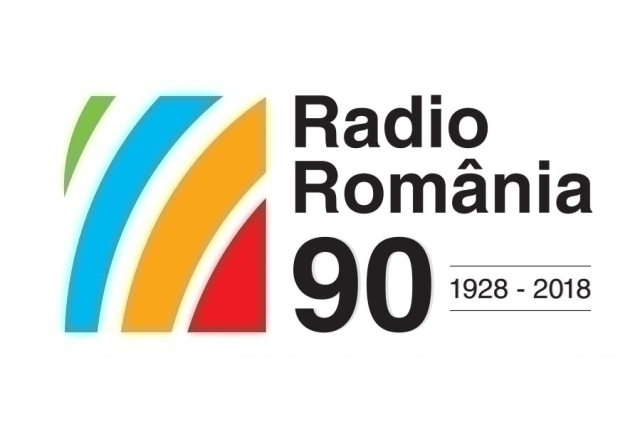Radio Romania 90
In 2018, Romania celebrates the Great Union of 1918 and 90 years since Radio Romania aired its first broadcast, back in 1928

Steliu Lambru, 12.11.2018, 11:55
Initiated by amateurs and supported by the state, Romanian radiophony was in perfect tune with the times, being a witness of the countrys major historical moments in the inter-war period and trying to respond to its listeners exigencies.
The first director of the Romanian Radio Broadcasting Corporation between 1935 and 1944 was Vasile Ionescu. He witnessed one of the most important political moments in Romanias history, to which the Romanian Radio Broadcasting Corporation had a direct contribution, the act of August 23, 1944 which changed Romanias foreign policy orientation. Romania relinquished the alliance with the Axis led by Germany and joined the United Nations coalition.
Here is an excerpt from the transcript of an interview with Vasile Ionescu from the archive of the Oral History Centre of the Romanian Radio Broadcasting Corporation, recorded back in 1974: “The Romanian Radio Broadcasting Corporation which has permanently served the country, since the very beginning, both in times of political and social peace and in times of turmoil for the nation, it has played a decisive role in keeping the public opinion informed, both in Romania and abroad. The Radio was close to the Romanians when His Majesty King Michael, supported by the real representatives of the national will, the generals commanding the big units and the patriots gathered around him in the Palace on Victory Road, led the coup of August 23, 1944. The Radio Broadcasting Corporation contributed to preparing and achieving that historical act.
On June 6, 1944, Vasile Ionescu was called to Pelisor Castle in Sinaia, to have an audience with King Mihai I. There, he was asked about the coverage area of the national radio stations transmitters and was kindly asked that the broadcast transmitted by Bucharest be received in Cairo, where secret negotiations were carried out to take Romania out of the alliance with Germany. The Antonescu government was negotiating with the Soviets, whereas the Democratic opposition was negotiating with the English and the Americans and therefore the delegates needed information from Romania. Transceivers were installed to secure a line of communication.
Vasile Ionescu: “We decided to set up a transmitter-reception station in Bucharest, at the Royal Palace on Victory Road, which we called ‘Carpati (‘Carpathians in Romanian) and another one in Sinaia, in the villa belonging to army general Gheorghe Racoviceanu, the kings godfather, and that station was called ‘Bucegi. A third one, called ‘Piatra (‘Stone in Romanian) was to be installed in Predeal, behind Marshall Antonescus villa. We chose that locations believing they were the only places that the Germans didnt dare raid or search, although the short-waves could not be detected by a goniometer due to their special propagation way. In a time frame of only 3 days, these shortwave-transceivers were installed and made available to the users. The ‘Carpaţi station in the Royal Palace in Bucharest was operated by probationary engineer C. Bonifaciu, the ‘Bucegistation based in Sinaia by engineer Gheorghiu Vladimir, and the Piatra station in Predeal, by technician Niculae Davidescu.
Vasile Ionescus life was intense soon after August 23, 1944, when Romania shifted sides and joined the Allies: “On Wednesday, August 23, 1944, at 17.00 hours I received a phone call from the Military Command of the Capital City, and I received the order to wear a military uniform. I reached the office of the capitals commanding general around 17.30 and very much to my surprise I met there the army corps general Iosif Teodorescu and his chief of staff, adjutant colonel Demeter Dămăceanu wearing civil clothes, although they were professional military. The army corps general Iosif Teodorescu spoke to me and said ‘Director general, from now on, you will only take orders from His Majesty King Mihai and adjutant general Constantin Sănătescu, the prime minister. And you will go to the Palace following the shortest route. Soon afterwards, adjutant colonel Demeter Dămăceanu phoned the Royal Palace on Victory Road and talked to divisional general Aurel Aldea, the then interior minister of the government led by adjutant general Constantin Sănătescu and told him about my coming there.
Attending the council convened by the sovereign in the evening of August 23, 1944 was also Vasile Ionescu, the director of the Radio Broadcasting station. The invitation extended to him actually shows that Radio was of strategic importance in the structure of the Romanian state.
Vasile Ionescu: In the sovereigns office, as from 18:00 hours, on August 23, 1944, for four hours, until 22:05, I witnessed all preparations and formalities consolidating the coup detat given by that time, starting with the arrest of Marshall Antonescu and of his most prominent collaborators, namely professor Mihai Antonescu, Vice-President of the Council of Ministers, the Minister of Foreign Affairs and Minister of Propaganda; the army corps general Piki Vasiliu, state secretary with the Interior Ministry and general inspector of the gendarmerie; professor George Leseanu, former governor of Transdniester. Radu Lecca, former commissioner of the government with the Central Jewish Office had already been arrested between 15:30-16:00 hours, until the signing of the decree on amnesty, pardoning and dismantling concentration camps, documents presented by Lucreţiu Pătrăşcanu.
Radio Romania has always responded when it was called upon to serve its duty. 90 years on, the public radio service boasts a rich history, which is still in the making.





























